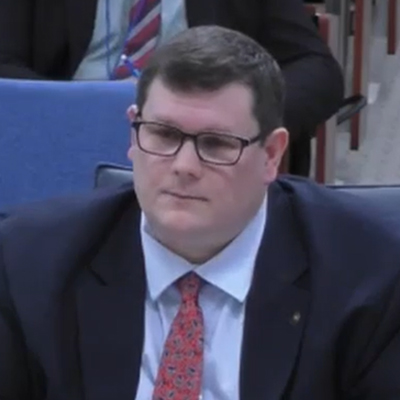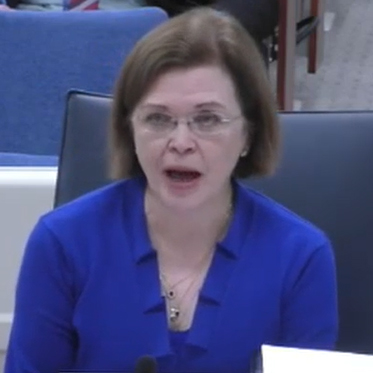
FERC proposed the creation of a single accounting class for energy storage projects like AES' Lawai Solar Project in Kauai, Hawaii, to end the need for reallocating costs between production, transmission and distribution accounts based on usage of the asset.
| National Renewable Energy LaboratoryFERC issued two rulemakings Thursday that would impose a “duty of candor” in communications and set new accounting regulations for renewables.
The Notice of Proposed Rulemaking that would amend the Uniform System of Accounts (USofA) to create new accounts for non-hydro renewables was approved unanimously, while the NOPR to address the current “patchwork” of requirements regarding truthful communications (RM22-20) moved forward on a 4-1 vote, with Commissioner James Danly dissenting.
The latter would require truthful communications with the commission, RTOs/ISOs, their market monitors, NERC and its regional entities, and other companies under FERC jurisdiction in the electric, natural gas and oil industries and markets, including transmission or transportation providers.
 Gabe Sterling, FERC Office of Enforcement | FERC
Gabe Sterling, FERC Office of Enforcement | FERC“In the past, different duties of candor have been adopted by the commission governing specific types of communications from certain organizations and persons and related to discrete areas of the commission’s jurisdiction,” Gabe Sterling, of the Office of Enforcement, said during a presentation at FERC’s open meeting. “This existing patchwork of requirements is insufficient to encompass all of the situations in which the commission must be assured that it is receiving accurate communications that are necessary for it to adequately conduct its regulatory oversight.”
The proposal, intended to capture communications that have not been explicitly included in existing requirements, is based on 18 C.F.R. section 35.41(b), approved nearly 20 years ago to govern communications by electricity sellers with market-based rate authority.
It would require covered entities to submit “accurate and factual information and not submit false or misleading information or omit material information.”
“We cannot do our job if we’re getting bad information … which arguably, we’ve gotten at times,” said Chair Richard Glick.
“It doesn’t really seem like a lot to say you have to tell the truth when you’re coming to the commission,” he added. “What blows my mind is that we actually don’t require that in many instances.”
As with section 35.41(b), entities would not be accused of violations if they can demonstrate due diligence to prevent false statements.
That wasn’t enough protection for Danly, however, who said the rulemaking was too expansive and vague.
He said the rule lacks the “ordinary safe harbor provisions” to protect First Amendment rights and that the commission failed to define “due diligence” or potential penalties for violations.
“The number of people that are covered by this is huge,” he said. “I am worried that people are going to be reticent to comment [negatively on the NOPR] because [it] would be construed as some kind of a declaration that they don’t believe that truth is necessary.”
Commissioner Mark Christie — a Republican, like Danly — said his colleague’s concerns were misplaced.
“I’m not worried at all about anybody’s reluctance to comment,” he quipped. “If people are queasy about commenting about the truth, all they’ve got to do is just hire their lawyer to do it.”
Commissioner Allison Clements also dismissed Danly’s criticism, saying “we are not going down the extreme path that” he suggested.
“I take seriously what Commissioner Danly said,” Commissioner Willie Phillips said. “We have to right-size it. I think the team has thought about that in the questions that they have proposed, and I too look forward to the comments.”
Those comments will be due 60 days after publication in the Federal Register.
In his dissent, Danly said the proposed rule could result in legal action against a landowner angry about construction noise who “says something like ‘I’ve never heard such a racket,’ but in fact she had heard such a racket at a Poison concert in 1988? Absurd? Yes. Duty of candor violation? Also, yes.”
In his press conference after the meeting, Glick said he became concerned about the issue when it came up in a 2019 order regarding connected entities (Order 860, RM16-17). “I was just appalled that we didn’t move forward with [the duty of candor] part of the order; that we couldn’t even require people to tell the truth,” he said. (See FERC Reduces MBRA Data Requirements.)
He conceded that “there’s a lot of detail that has to be worked out.”
“We’re asking for comments; we’re looking forward to reading those comments and making changes based on those comments. But at least let’s try to move forward with something,” he said.
Anyone found violating the rule could be subject to Enforcement action. But the NOPR said “it is not the commission’s intention to investigate or penalize all potential violations of the proposed regulation. As a general matter, we do not intend to penalize inadvertent errors, especially those of limited scope and impact.”
Renewable Accounting Rule
The second rulemaking (RM21-11) would be the latest in a number of revisions that the USofA has received in response to changing technology, laws and market conditions since its creation by FERC’s predecessor, the Federal Power Commission.
The NOPR, which resulted from a January 2021 Notice of Inquiry, proposes four changes:
- the creation of dedicated production accounts for wind, solar, and other non-hydro renewable assets. Because the current USofA does not have unique accounts for non-hydro renewables, utilities characterize them as “other production.” The new categories will result in more uniform and transparent reporting, FERC said.
- the creation of a single class for energy storage accounts to end the need for utilities to reallocate costs between production, transmission and distribution accounts based on usage of the assets. The commission said the current practices are impractical and a significant burden on the filing entities.
- the codification of the accounting treatment of renewable energy credits (RECs) and similar financial instruments. It would result in the creation of dedicated inventory accounts for RECs, consistent with previous commission guidance on emissions allowances.
- the creation of dedicated accounts for computer hardware, software and communications equipment. The NOPR seeks comment on whether FERC should also create such accounts for natural gas pipelines, oil pipelines and service companies.
 Kimberly Horner, FERC Office of Enforcement | FERC
Kimberly Horner, FERC Office of Enforcement | FERCKimberly Horner, of the Office of Enforcement, said the new accounts for renewables “would provide utilities with the ability to report in a more transparent manner to better inform the ratemaking process and also inform the public of their investments in these technologies.”
She said the current handling of energy storage assets is burdensome because the cost of the same asset must be reallocated among the different accounts based on their usage, which frequently changes. “The new proposed accounting would instead propose one account, and it would reduce the burden by allowing for the cost of the same asset to be recorded in one account, rather than continuously reallocated,” she said.
In addition to the proposed changes, the NOPR seeks comment on whether FERC’s chief accountant should issue guidance on accounting for hydrogen applicable to public utilities and licensees and natural gas companies.
Comments are due 45 days after publication in the Federal Register.
Michael Brooks contributed to this article.



